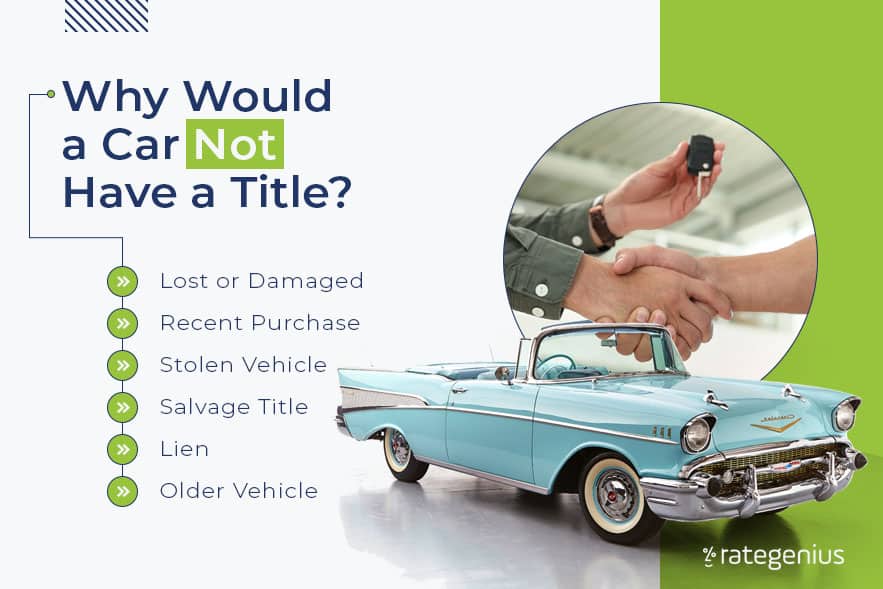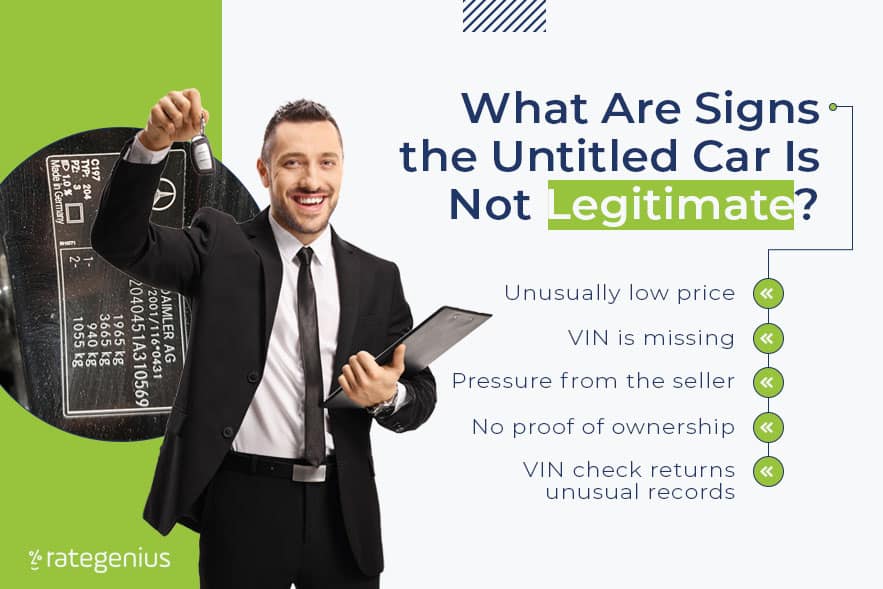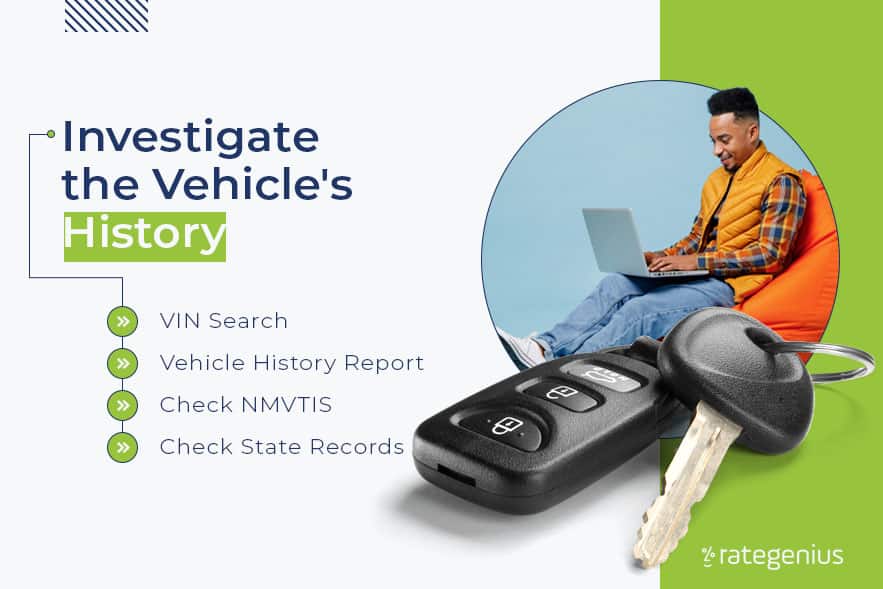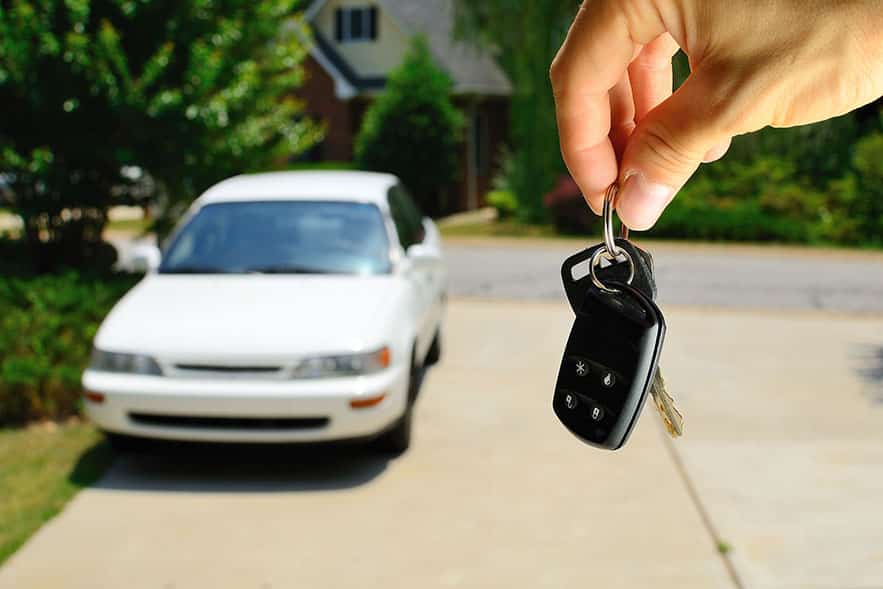When you buy a car, whether new or used, one of the most important documents you’ll need is the title. The title, also known as a certificate of ownership, is proof that you are the vehicle’s legal owner. However, not all cars have titles, which may leave you wondering if purchasing a car without a title is possible.
The quick answer is yes. You buy a car without a title. However, you’ll need to take extra steps before becoming the new owner to ensure the vehicle is legally yours and registered with your state’s motor vehicle agency. For these reasons, you should exercise caution when buying a vehicle without a title.
What Is a Car Title?
A car title is a document that proves you are the owner of a particular vehicle. In most states, you need a car title to register your vehicle.
Car titles exist primarily to prevent fraud and ensure that only one person can claim ownership of a particular vehicle. Without titles, it would be much easier for people to sell stolen cars or cars they don’t own.
A car’s title includes important information about the vehicle to help you ensure it’s a legitimate sale and to give you additional information about the vehicle. For example, the title usually includes information like the name and address of the current registered owner as well as previous owners, the vehicle’s make, model and year, the vehicle’s VIN (a unique identification number assigned to each car or truck) and any liens or encumbrances on the vehicle.
When it comes to a title vs. registration, it’s important not to confuse the two. Car registration is a document that proves the vehicle is up to date on its yearly registration fee. You’ll need to renew your registration in most states every 12 months. In contrast, your car title is a legal document that proves who owns the vehicle — and it’s good for as long as you own the car.
There are several different types of car titles, including:
- Clean – There have been no accidents, damage or serious repairs reported involving the car.
- Clear – The original owner is known, and no liens or encumbrances exist on the vehicle.
- Salvage – The car has been declared a total loss due to an accident, flood damage or other damage. Sometimes these are branded as Flood Salvage or Fire Salvage.
- Rebuilt – The car has been declared a total loss, but it has been restored to running condition with parts from another vehicle. It’s important to note that different laws apply depending on the state.
- Lemon Law Buyback – Lemon laws are state-level and protect consumers against defective products. In some states, these laws apply to cars and trucks. Vehicles bought back by the manufacturer or dealership are branded Lemon Law Buybacks.

Why Would a Car Not Have a Title?
Understanding why a car might not have a title is an important factor in deciding whether to make the purchase. There are a few reasons why a car might not have a title:
- Damaged or Lost Title – A common reason for a car not having a title is that it was lost or damaged beyond legibility. If you’re considering buying a car without a title, get all the details from the seller about why the title is missing. In some states, getting a duplicate title is as simple as filling out a form and paying a small fee. In others, it can be much more complicated and time-consuming. In either case, you can request the seller do this before you purchase the car.
- Recent Purchase – A car might not have a title because it was recently purchased. In some states, there is a grace period during which the seller has to send in the paperwork and receive the new title in the mail. If you’re buying from an individual who just bought the car themselves, be sure to find out how long ago they purchased the car and whether they’ve received the new title yet. Also, be wary of title jumping (or title skipping) when the seller quickly transfers ownership of the car to avoid their financial obligations, usually taxes.
- Stolen Vehicle – Unfortunately, another possibility is that the car was stolen. If this is the case, then, of course, no title exists. It’s important to be aware of this possibility and ensure you’re not buying a stolen vehicle when shopping for a car. Be sure to get all the details from the seller and do your due diligence.

- Flood, Fire or Other Salvage Title – A dishonest seller might withhold the title if it’s a salvage title. Salvage vehicles are typically those that have been damaged in a fire, flood, or other disasters. If the damage is extensive, the insurance company declares the vehicle a total loss and issues a salvage title. The salvage title means that the vehicle cannot be lawfully driven on public roads and must be repaired before it can be registered and titled again. It is possible to obtain a Rebuilt title, but not all sellers are willing to go through the process and may try to sell the vehicle without a title.
- Lien – Another reason a car seller might not have a title for the vehicle is that there’s an outstanding lien against it. A lien is an unpaid debt attached to the vehicle, most commonly for the loan taken out to purchase it. The lender holds the title until the loan is paid, and they can release the lien. So, in this case, the seller won’t hold the title and cannot until their debt is paid off. In most states, it’s a requirement that the lender holds the title. The majority of states are title-holding states, with only nine being non-title-holding states.
- Older Vehicle – Pre-1970s used cars often do not have titles because states were not yet required to issue titles for vehicles at the time of manufacturing. In this case, the seller should provide a bill of sale and other paperwork instead. This can make it difficult to prove ownership, so do your due diligence and ask for as much paperwork as possible before buying an older vehicle. There are no longer any “No Title States” in the U.S.

What Are Signs the Untitled Car Is Not Legitimate?
If you’re considering buying an untitled car, watch out for signs that the car is not legitimate. Knowing these signs helps you avoid getting into a bad situation. Here are a few things to look out for:
- Unusually low price – The adage is true: If it sounds too good to be true, it probably is. An unusually low price on an untitled car is likely because the car has been in an accident, stolen or has some other issue the seller is not disclosing.
- Pressure from the seller – Unusual pressure from the seller or urgency for selling are warning signs of a potential scam. This is especially true if they don’t let you take the car to a mechanic or won’t allow you to have another third party inspect it. The seller may say they need to sell the car quickly because they’re moving out of state or some other urgency. But the truth is, they may not want you to find out about any issues with the car before you buy it.
- VIN number is missing, scratched off or looks altered in any way – A VIN number is a 17-digit code on the car that is used to identify it. If you’re wondering where the VIN is on a car, you can find these located on the dashboard or the inside of the driver’s door. There are usually additional VINs stamped into other parts of the car. If any of these VINs are missing, scratched off or look like they’ve been tampered with, it’s a sign that the car may be stolen or not legitimate. This is especially true if you find they don’t match each other or the paperwork.
- VIN check returns unusual or no records – If you can’t find the car in public record databases such as Carfax, the National Motor Vehicle Title Information System (NMVTIS) or AutoCheck, it’s a red flag that the car may have been stolen or is not legitimate. As we have mentioned, in some cases, there are legitimate reasons why the seller doesn’t have a title for the car. But if they are unwilling to provide alternative proof of ownership or work with you to get a new title, it’s a sign that something is wrong. So it’s always best to avoid these types of cars and sellers altogether.
Does A Car Without a Title Need A License Plate At The Time Of Purchase?
In most cases, if you are considering buying an untitled car, it does not need a license plate at the time of purchase. An untitled car typically means it has not been registered with the Department of Motor Vehicles (DMV) or similar agency, so it does not have a license plate assigned to it.
Here’s what typically happens when purchasing an untitled car:
- Temporary Tag or Transit Tag: When you purchase an untitled car from a car dealership or private seller, they may provide you with a temporary tag or transit tag. This temporary tag allows you to legally drive the car for a limited period, usually around 30 days, while you complete the necessary paperwork to title and register the vehicle in your name.
- Bill of Sale and Title Transfer: At the time of purchase, you will receive a bill of sale from the seller. This document serves as proof of purchase and includes important details such as the sale price, vehicle identification number (VIN), and seller and buyer information. You will also need to complete a title transfer to officially transfer ownership of the vehicle to your name.
- Registering and Titling the Vehicle: After purchasing the untitled car, you will need to visit your local DMV or motor vehicle agency to register and title the vehicle in your name. You will need to submit the necessary documents, including the bill of sale, title, and any required fees. Once the registration and titling process is complete, the DMV will issue you a permanent license plate for the vehicle.
It’s important to note that the specific requirements and procedures for registering an untitled car may vary by state or country. Be sure to check with your local DMV or motor vehicle agency for detailed information on the process and any additional requirements.
Until you complete the registration and titling process, it is generally recommended not to drive the untitled car on public roads without a valid temporary tag or transit tag. This helps ensure that you are in compliance with local laws and regulations regarding vehicle ownership and operation.
What Are the Best Options for Buying a Car Without a Title?
If you’re okay with purchasing a car without a title, it’s important to work with the seller to determine your options. Every state is different, so you may have more or fewer options depending on where you live. Here are some of the best ways to purchase an untitled car:
Ask for a Replacement Title
The simplest way to purchase a car without a title is to ask the seller for a replacement title. Depending on your state, the procedures for this process may vary. However, obtaining a replacement title is generally uncomplicated and inexpensive if the seller has all the necessary documents.
Every state has its regulations on re-issuing a title. In some states, you may not be able to obtain one for cars that predate a specific year. For example, New York does not title any motor vehicle model year 1972 or older, while in Rhode Island, the model year 2000 and older are not eligible for titling.

Investigate the Vehicle’s History
It’s important to do your due diligence and thoroughly investigate a titleless vehicle before buying it. Here are the best things you can do to investigate the history of a car:
- VIN Search – One of the best ways to check a vehicle’s history is by running a VIN search. This tells you if the car has been in any accidents, if it has any outstanding recalls and if there are any other flags in its history. You can run a VIN check on websites like Carfax or AutoCheck. All you need is the vehicle’s VIN, which is usually located on the dash near the windshield on the driver’s side.
- Vehicle History Report – Another way to check a car’s history is by ordering a vehicle history report. This gives you similar information to what you would get from a VIN check but may also include additional details like service records and ownership history. You can order a vehicle history report from websites like Carfax or AutoCheck. Again, all you need is the VIN.
- National Motor Vehicle Title Information System (NMVTIS) – If you’re considering buying a car from an individual seller, it’s always a good idea to check NMVTIS first. NMVTIS is maintained by the Department of Justice and includes information on: salvage and junk vehicles; vehicles with titles that states have issued in “branding” situations; odometer readings; and flood damage histories. To use NMVTIS, you’ll need to work with an approved NMVTIS data provider. Many of these are the same ones that give vehicle history reports and may include this information as part of their service.
- State Records – A final way to learn about a car’s history is by checking state records. These records can tell you if the car has been in any accidents or if there are any outstanding liens against it. To access state records, you’ll need to contact your state DMV and submit a request for the information. Each state has different procedures, so check with your DMV for specific instructions. This is useful when you’re sure the car has only been owned in one state.
Bill of Sale and Affidavit from the Seller
When a title isn’t available, getting a bill of sale and an affidavit from the seller is essential. A bill of sale helps to prove that you legally own the vehicle, while an affidavit is a sworn document that states the seller is the rightful owner of the car and that there are no liens or debts owed on the vehicle. These documents help prove your ownership rights to the car if you ever need to provide proof.

Information that should be included on a detailed bill of sale includes everything that you would find on a car title. This includes the year, make, model, VIN and odometer reading. You should also get the seller’s name, address, sale date and price.
The affidavit should include a sworn statement from the seller that they are the rightful owner of the vehicle and that there are no liens or debts on the car. The seller should also swear that they have not sold the vehicle to anyone else and are legally transferring ownership of the vehicle to you. You may also need a notary to authenticate the seller’s signature in some states. Check with your local DMV to determine the documents you need for title transfer in your state.
Can I Get a New Title for a Car Without a Title?
In some cases, yes, you can get a new title for a car without a title. Depending on where you live, the process may vary. Generally, getting a bonded title is the best option in most cases.
A bonded title is a type of title that’s issued to a car when the original title is not available. To get a bonded title, you’ll need to provide the DMV with proof of ownership, such as a detailed bill of sale or previous registration. You’ll also need to provide evidence of your identity and other documents related to the car. Getting a bonded title may vary from state to state, so check with your DMV for specific instructions.
A bonded title can be acquired by purchasing a surety bond from an insurance company or bonding agency. The cost of the bond depends on the car’s value, and there is a specified term for the bond. A bonded notice is also attached to the title so that any future buyers of the car know that it has a bonded title if sold before the expiration of the bond. If the period elapses without challenges to the title, the bonded notice can be removed.

Final Thoughts on Buying a Car Without a Title
It’s always important to be aware of the risks associated with buying a car without a title. While there are ways to get a new title, in some cases, it can be difficult and may require additional paperwork. In most cases, getting a bonded title may be your best bet. Make sure you understand what this entails and how much it costs before making any decisions. And if the situation seems suspicious, it’s best to stay away as there may be something else going on.
Ultimately, buying a car without a title can be tricky, but it can be done with the correct information and preparation. Be sure to research and consult a legal professional if you have any questions or concerns.
About The Author
Robert Janssen
Robert Janssen is the Vice President of Operations for Tresl, and has been working in the auto finance industry for 15 years. He recieved a B.A. in Economics from the University of Texas at Austin.
;)







